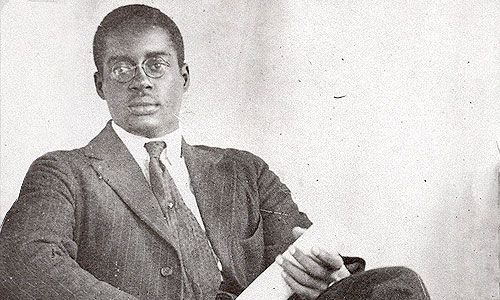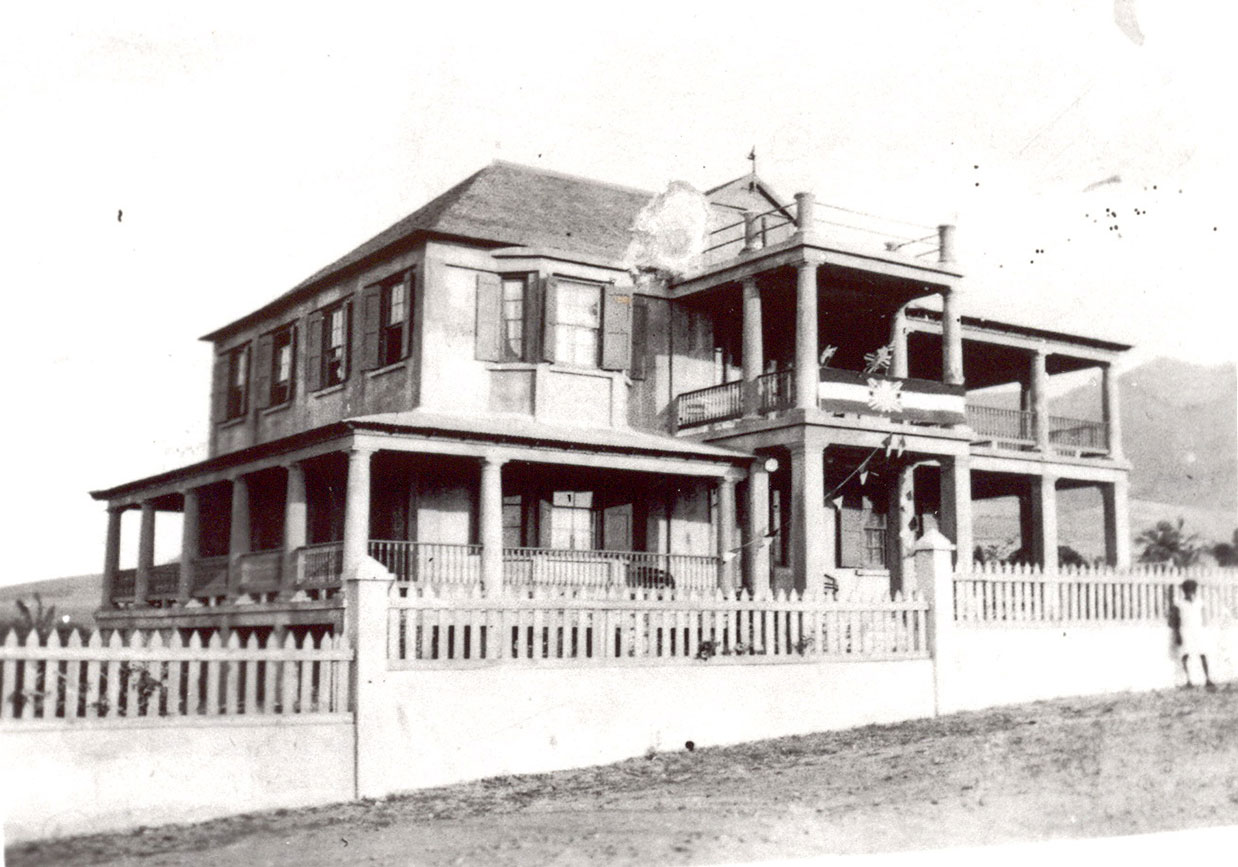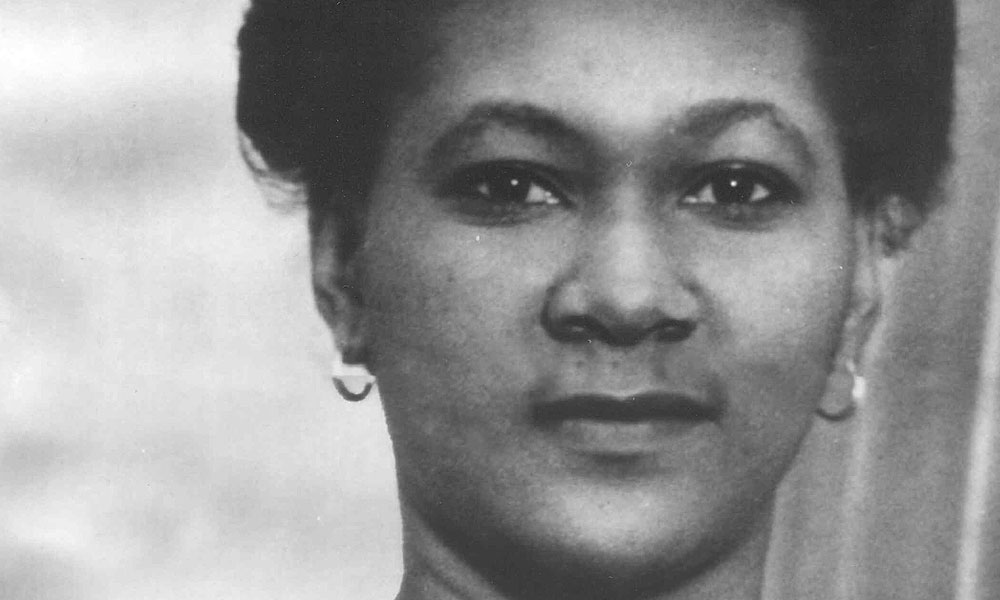
Samuel Benjamin Jones was born of humble parentage on the 25th April 1874 in Antigua. His father died when he was very young and he was raised by his mother and grandfather. His grandfather, who had been born a slave, ensured that young Samuel obtained both a primary and a secondary education. At the age of nine he was awarded a scholarship to the Antigua Grammar School, and became one of the Antigua Diocesan Students at Codrington College. Later he emigrated to the United States where he taught for a number of years at St. Ambrose Parish School, in Raleigh, North Carolina and for a short time at the Negro Agricultural and Technical College in North Carolina. In 1918 he married Anna Vivianne Dudley, daughter of Dr. James Dudley, the Principal of the College.
While in the US, Jones entered the medical profession and even furthered his studies in Scotland obtaining and Licentiate of the Royal College of Physicians (LRFP) through the University of Glasgow and a Licentiate of the Royal College of Surgeons (LRCS) through the University of Edinburgh. He eventually returned to the West Indies.
His first appointment in St. Kitts was as Acting Medical Officer for District No. 2 from April to August 1918. His office was then at the Newstead Building now part of Government Headquarters. He was later transferred to Anguilla where he served as Doctor and Magistrate from August 1918 to May 1923.
During his time in Anguilla, the island experienced four consecutive years of drought, food shortages, a hurricane and a quarantine period of several months due to the presence of small pox on the island brought on board a vessel from the Dominican Republic. Jones appealed to the people to be vaccinated and then appealed to St. Martin to try to procure more vaccines as those on Anguilla had been exhausted. The authorities in St. Martin would not allow Jones and his fellow doctor to land and the vaccine was placed on a long pole and eased over onto their boat. A 15 foot by 20 foot hospital was quickly constructed and the doctors and the islanders weathered the disease together.
In his reports, Jones showed great concern for the plight of the Anguillans population which was often on the brink of starvation. He stressed the immediate need for a small hospital and a district nurse to teach basic sanitation, and in 1921 applauded the efforts of two midwives who had learnt the need for basic cleanliness in the delivery room.
In 1936 Dr. Samuel Jones published Annals of Anguilla, his tribute to the unflinching courage displayed by all classes of the population of Anguilla in the face of overwhelming odds. It was his way of pointing out to the people of his time that they did have a past of which they could be proud. His opinion on the matter of Black pride was very clearly stated when he said, “I am firmly convinced that very little substantial progress can be made by any race which has not learned to reverence its forebears, no matter what they were, and to think of them as men who had done heroic deeds, making the race great by their strong efforts in the past.”
In 1924 Jones returned to District 2 in St. Kitts. In 1935 the Administration considered giving him a country district so as to give the Basseterre area to Dr. Branch. Branch had been ill and it was felt that it would be better for his health to serve as a doctor in town. However the Administrator was worried as to how this move would be interpreted particularly following the Buckleys’ labour disturbances and the growing awareness of racial discrimination among the population and in the end Jones remained in District 2 until his retirement in 1939.
His main concern, at this time, was the prevalence of syphilis and intestinal worms particularly Bilharzia. He made extensive field studies, used the laboratory to keep track of the disease and ensured that patients received the necessary medications. He also made contributions to medical journals. His efforts against epidemic outbreaks especially in the case of a small pox epidemic lead to the award of an honorary title of Order of the British Empire (OBE) in 1933.
Dr. Jones retired from active Government service in 1939. However during the Second World War he was appointed Information Officer. He also served as a member of the Board of Education and the Social Welfare Advisory Committee.
His ability to empathize with the masses earned Jones their admiration and respect. He did not hesitate to provide free medical service to those in financial straits. His commitment to the well being of the community often led to strong expressions of opinion on matters of principle. He also participated in such popular activities as baby shows, which afforded him the opportunity to encourage better standards of nurturing among nursing mothers
A well-read and highly informed individual, Jones was willing to share his knowledge with others and was often called upon to give public lectures. His sound philosophy of life, his lucid style and his liberal use of anecdotes captured and sustained the undivided attention of his audience. Within the Jones’ household everyone was encouraged to discuss local and foreign events that were reported in the local press. Although they had no children of their own, Dr. Jones and his wife raised and educated several. He was also a strong supporter of Mariam Pickard and the newly founded Girls’ High School.

Dr. Jones’ home, Koromantyn Lodge at Wigley Avenue, contained a well-stocked library which was continually enriched by subscriptions to literature written by black people about black achievement. . Local creative artists were encouraged in their talents. Works Eva Wilkin, Cynric Griffin and Aimee Dinzey decorated the walls of his house. Attendance at the best of local concerts and recitals was a must for the Doctor’s household.
Dr. Jones was a serious advocate of the Grow More Food Campaign that was introduced in St. Kitts and Nevis during the war. He showed the high nutritional value of various kinds of locally grown food and criticized the Precedency’s dependence on imported foodstuff. The grounds of the Lodge exemplified his commitment. They contained a wide variety of tropical fruits and vegetables, and choice goats, fowls and turkeys were raised as lessons in animal husbandry. Mrs. Jones shared her husband’s interests and parties at their house featured home-grown and home-made refreshments.
Dr. Samuel Benjamin Jones died at his home on Friday 11th November 1949 at the age of seventy-five. For his funeral, St. George’s Anglican Church in Basseterre was full of mourners and many had to be content to follow the service from the church yard. It was reported that no less than one hundred cars were in the funeral procession.




